100 Things To Stop Buying To Boost Your Empty Emergency Fund
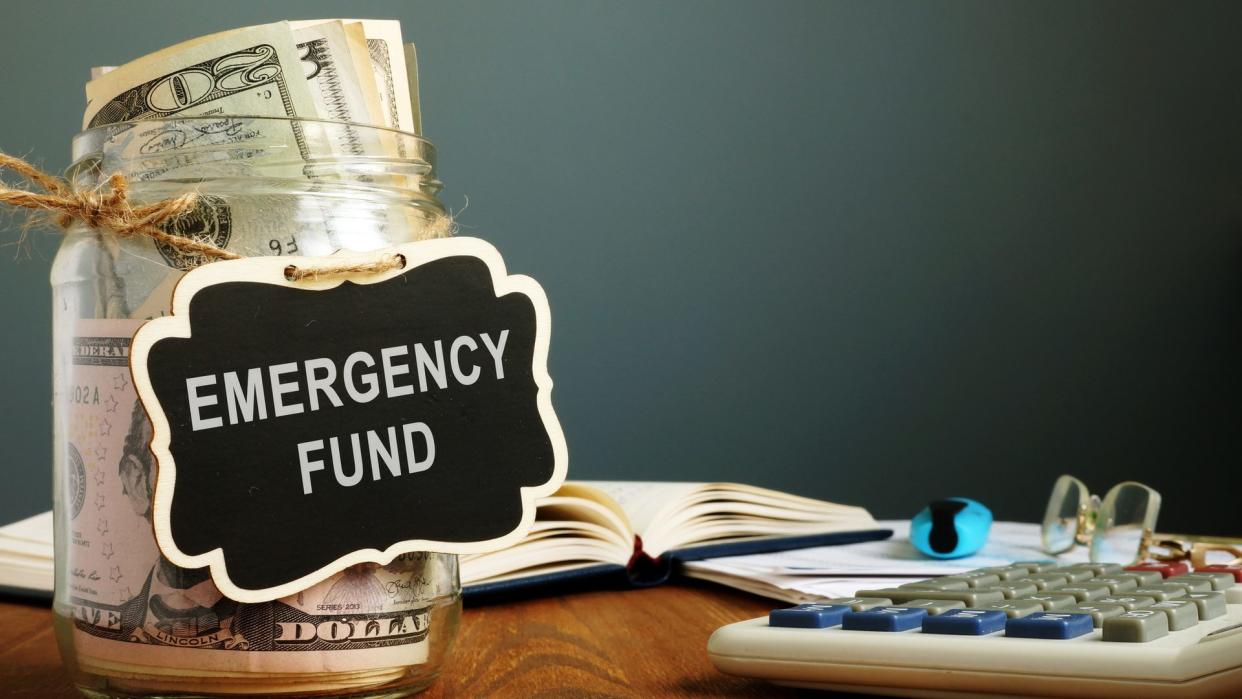
If you’ve had to deal with an unexpected expense over the last few years, you may have tapped into your emergency fund. Personal finance experts typically recommend that you save three to six months’ worth of living expenses in a savings account just in case.
Check Out: 10 Things Frugal People Always Buy at Yard Sales To Save Money
Learn More: How To Get $340 Per Year in Cash Back on Gas and Other Things You Already Buy
If you stopped making certain purchases or swapped some items for cheaper alternatives, you would have more money for your emergency fund.
Here are 100 things you could stop buying or find for cheaper in order to replenish your emergency savings.
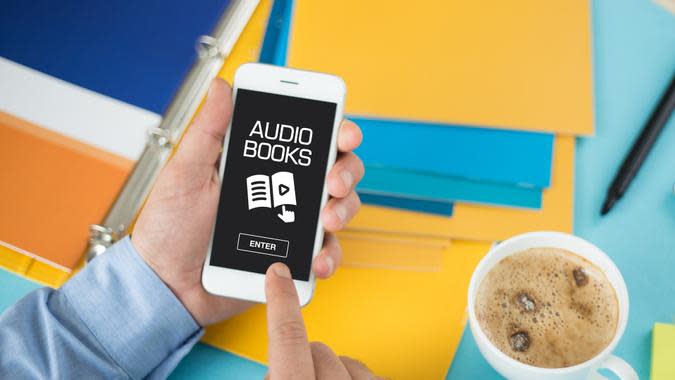
Digital Services and Subscriptions
Stop spending on:
Netflix. Chances are that you have too many streaming services, and you may not need all of them.
Premium Spotify. You don’t need to have the premium version of Spotify; you can save money by listening to commercials.
Games on your phone. There are plenty of free games you can download to your device.
In-app purchases. These extras can add up, so you’ll want to review these.
Premium dating apps. Perhaps you have upgraded a dating app and forgot about the premium account.
Discover More: 5 Unnecessary Bills You Should Stop Paying in 2024
Read More: 7 Grocery Items To Avoid While on a Retirement Budget
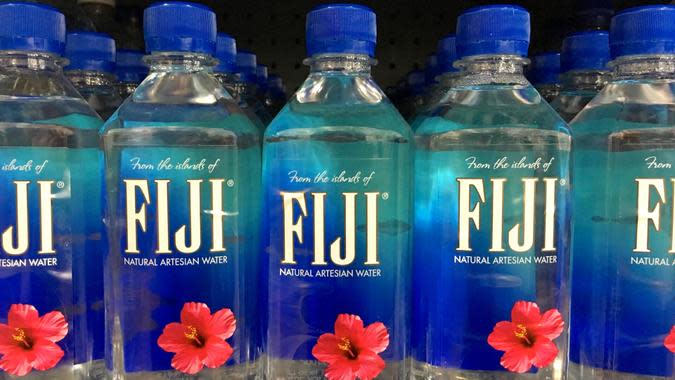
Food Items
Stop spending on:
Pre-cut fruits and vegetables. You can cut your own fruits and vegetables to save some money.
Bottled water. Tap water can hold you over as you replenish your emergency fund.
Snacks in bulk. You don’t have to load up on snacks at Costco because you might overindulge.
Packaged snacks. You can save money by purchasing individual snacks instead of opting for the pre-packaged ones.
Meat. If you’re on a tight budget, you can reduce your spending on meat for your meals.
Find Out: 5 Frugal Habits of Mark Cuban
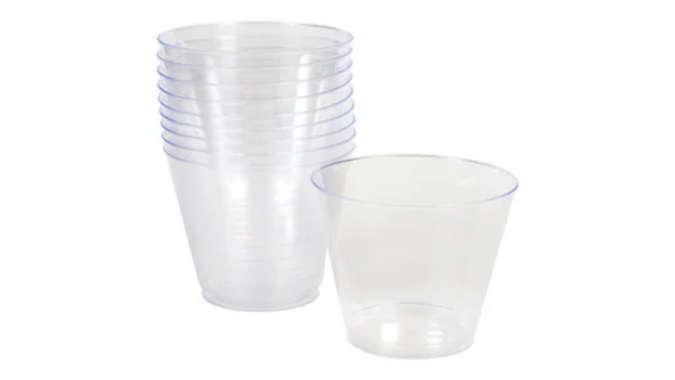
Food-Related Supplies
Stop spending on:
Brand-name products. You can look into store brand labels to save money on your grocery bill.
Plastic cups. You don’t want to spend money on plastic cups for a party because you may just throw them out.
Cutlery you won’t use. You don’t need all the cutlery you rarely use in your kitchen pantry.
Garbage bags. You can spend too much on garbage bags you don’t need.
Spices you won’t use. You don’t want to overdo it with the spices.
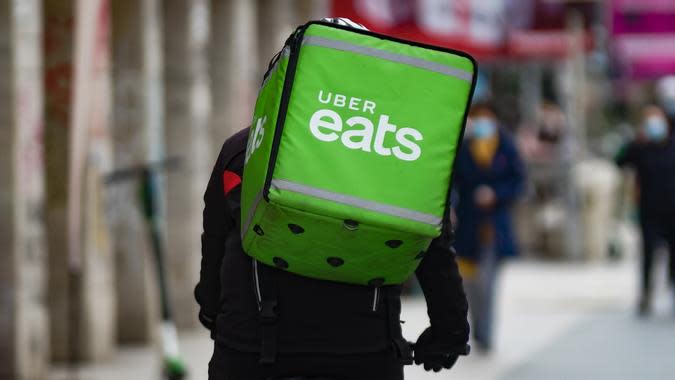
Take-Out Food Expenses
Stop spending on:
Uber Eats and any other food delivery app you have on your phone. This expense can add up quickly.
Constantly eating out. Eating out frequently can add up and hurt your budget.
Tipping for food delivery. Those tips for food delivery will make it difficult to tip.
Ordering appetizers. You don’t have to order appetizers when you go out for food.
Ordering alcohol. The price of alcohol is marked up at restaurants.

Coffee-Related Purchases
Stop spending on:
Expensive morning coffee. You can try to make your own coffee.
That coffee maker you’ll rarely use. You want to be realistic about the coffee maker you use.
Purchasing a croissant or snack with your coffee. Those snacks can add up quickly.
Single-use pods. These coffee pods can get costly.
Extravagant coffee products that you can’t afford. While you can occasionally treat yourself to a cappuccino, you don’t want to overindulge with the lattes.

Services You Forgot About
Stop spending on:
The gym membership you rarely use. You have to be realistic about your usage.
You have gift cards lying around your drawer. You want to go through them to see if there’s any money left.
Rebates you have. You want to ensure that you take advantage of any rebate offers.
Items you forgot to sell. You likely have items around your home that could bring in some money to boost your emergency fund.
Subscriptions. If you review your credit card, you may find a subscription that you forgot you were paying for.

Around the House
Stop spending on:
Lawn care. You can save money by handling your own lawn.
Not shoveling your own driveway. On a similar note, you can shovel your driveway as well.
Electronic tools you don’t need. Instead of investing in a snow blower, you can rely on your snow shovel.
Plants and flowers you forget about. You don’t want to overdo it with your plants if you’re going to forget about them.
Not maintaining your tools. If you don’t sharpen your tools and maintain them regularly, you could have to spend more money on replacing them.
Explore More: 10 Expenses Most Likely To Drain Your Checking Account Each Month
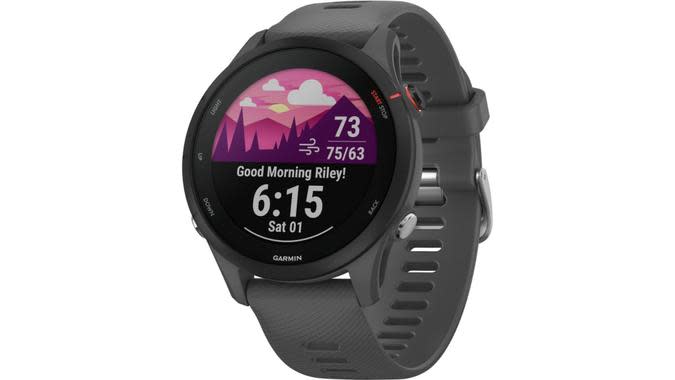
Electronics
Stop spending on:
Smartwatch. You may not need a watch that tracks every aspect of your life if you don’t plan on using it.
Tablet. You could get the same value out of your cell phone or laptop.
A TV for every room. You don’t have to have a television set in every room in your home.
Replacing your laptop frequently. You can try to get more usage out of your current laptop instead of replacing it often.
Random kitchen gadgets. As tempting as it will be to fill your kitchen up with the latest gadgets, these items could hurt your bottom line.

Household Items
Stop spending on:
Bulk supplies. You don’t have to buy supplies in bulk because you may overconsume.
Air freshener. You can light a candle for the same impact.
Magazines. You don’t have to subscribe to multiple publications.
Storage unit. Reduce your extra belongings so they will fit in a storage unit in your home.
Books. Rather than buy, borrow books from the library to save money.

Luxuries You Can’t Afford
Stop spending on:
Fancy vacation. You may not have the room in your budget for that lavish vacation this year.
Spa days. You may have to put these on hold.
Outsourcing services you can do. If you can do something, you can save money by completing the task on your own.
Cleaning services. You might have to do this on your own also.
Dry cleaning. You may have to hang your clothing instead of paying for dry cleaning.
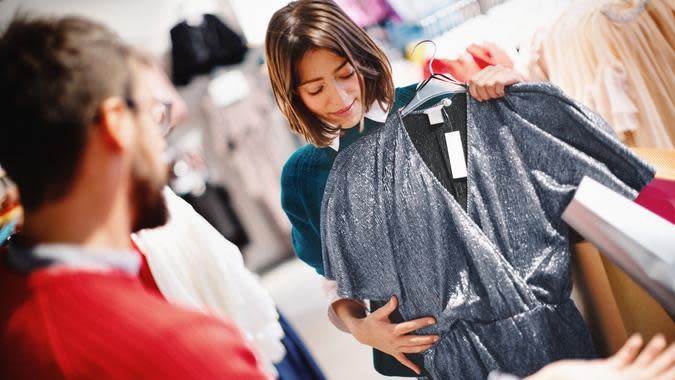
Clothing
Stop spending on:
Seasonal clothing. You can keep your winter clothes for more than one season.
New clothes. You can find good deals at vintage shops, too. If you take better care of your clothing, it will last longer.
Expensive outfits. You don’t need a spendy wardrobe update every year.
Random accessories. You can try to keep a simple wardrobe.
Expensive jewelry. You’ll want to watch how much money you spend on this.

Transportation
Stop spending on:
A car. Take public transportation.
Public transit. You can forgo spending here to by walking or riding a bike.
Parking tickets. You want to ensure that you follow parking signs.
Speeding fines. These could be fairly expensive.
Flying. With airline costs going up, you could save money with a road trip.
Learn More: Frugal People Love the 6 to 1 Grocery Shopping Method — Here’s Why It Works
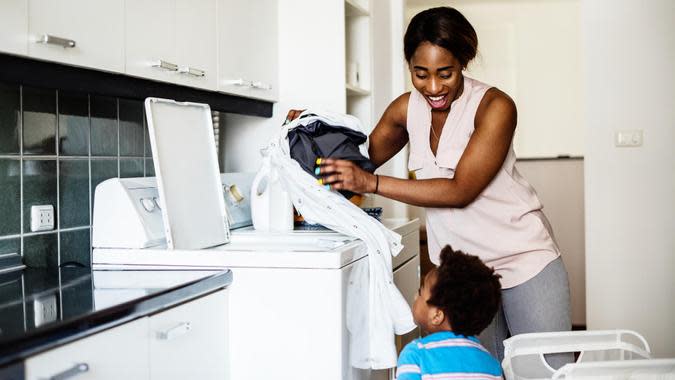
Laundry
Stop spending on:
Washing your clothing too often. You’ll want to wait until you have a full load.
Not air drying. You can air dry your clothing.
Too many reruns. Clean the air filter. This will help ensure the machine runs smoothly.
Washing with warm water. You can save money by using cold water.
Detergent. You want to be economical with your detergent.
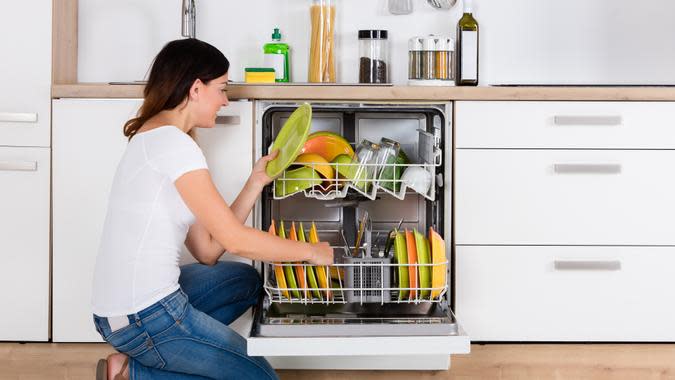
Utilities
Stop spending on:
Leaving the lights on. Ensure that your lights are turned off when you leave.
Your heat bill. You can save some money by wearing a sweater in the winter.
Phantom power. Some electronics will still eat up electricity when they’re turned off because they’re plugged in.
Losing heat. Check your windows. You want to ensure that there aren’t any cracks letting air sneak out.
Dishwasher. Air dry your dishes. You don’t always have to use the dishwasher.

Financial Accounts
Stop spending on:
Monthly maintenance fees. Your checking account should be free.
Investing fees. You want to review your account fees to save money.
A financial advisor. You don’t need a financial advisor if you still don’t have money to invest.
Things you are not tracking. You want to know where your money is going to boost your empty emergency fund.
Bad returns. You could get a high-yield savings account. You want to ensure your funds are stored in a high-yield savings account to get more bang for your buck.
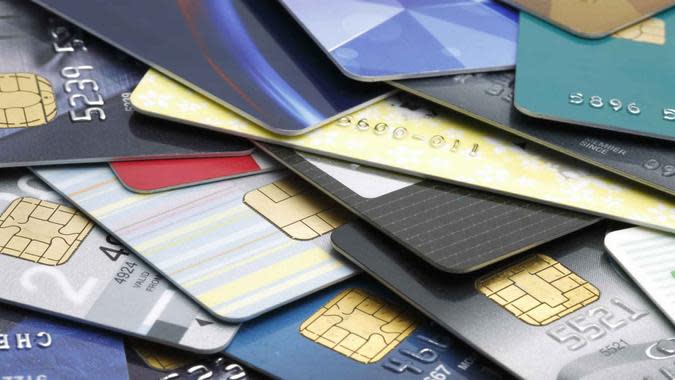
Your Debt
Stop spending on:
Your credit card. Using your credit card carelessly could lead to additional debt.
Impulse purchases. If you can’t control your impulse spending, you may not be ready for a credit card.
The wrong debt. You want to pay down your high-interest debt to save more in the future.
Random credit card offers. Just because you’re offered a new credit card doesn’t mean you should accept it.
High-interest loans. Wait for better rates to buy or find alternate ways to finance your purchase.
Check Out: 10 Best Cheap Gym Memberships: Break a Sweat but Not Your Budget
Be Aware: 6 Things Minimalists Never Buy — and You Shouldn’t Either

Your Cell Phone
Stop spending on:
Going over your allotted data usage. Try to use Wi-Fi whenever possible.
Upgrading your phone constantly. You don’t always need the newest phone model.
Phone repairs. If you’re careless, you could drop your phone and spend money on repairs.
Accessories. You don’t need the most expensive case.
Texting while driving. This could come with a hefty fine.

Living Expenses
Stop spending on:
Living alone instead of finding a roommate. You could find a cheaper rent deal if you find a roommate.
Living in a community with a high cost of living. If you’re spending too much on housing expenses, you can look into moving to cut back in this area.
A too spacious house. If you have a spare room, you can turn it into an income stream with a short-term rental platform.
Utilities. You want to limit your utility bill in any way you can.
Buying more home than you can afford. You don’t have to buy a larger home just because you were pre-approved.
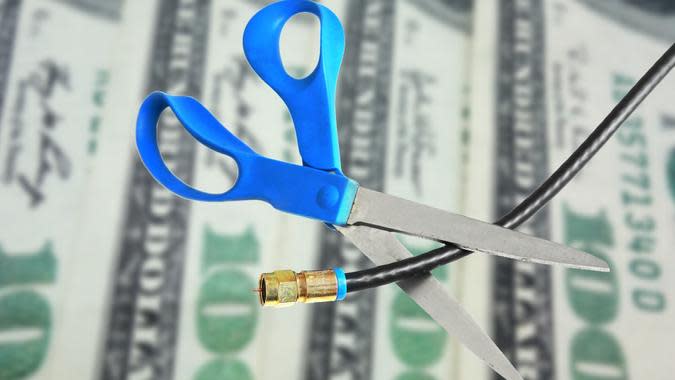
Your Services
Stop spending on:
Your service plans. You can always contact your insurance company or cell phone provider to negotiate a better plan.
Services you no longer use. You’ll want to review your credit card statement to see if you’re still paying for any services you’ve forgotten about.
Premium version. You don’t have to spend the money on premium versions of every service.
Forgetting about auto-renew. You want to set a calendar reminder so you don’t forget about any auto-renew payments.
Cable. You can cut the cord if you haven’t gotten around to it yet.

Personal Health/Hygiene
Stop spending on:
Expensive cologne. You can get by with a quality soap or a cheaper version of cologne/
Brand-name haircare products. You can eliminate some of the haircare products that you rely on.
Brand-name beauty products. You can reduce the number of brand-name beauty products you use to save money.
Taking multiple showers daily. You could save money by monitoring your shower usage.
Random body sprays that you don’t need. You don’t want to overspend on fancy body sprays that don’t really do much for you.
More From GOBankingRates
This article originally appeared on GOBankingRates.com: 100 Things To Stop Buying To Boost Your Empty Emergency Fund
